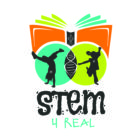Black Women in STEM
A Ban on African American Studies is a Ban on STEM Education and a major setback for Black women in STEM careers, Here’s Why!
In recent legislation, the state of Florida has banned the study of the Advanced Placement (AP) Course, African American Studies. Though this directly impacts History and Social Studies education departments, as a former science teacher, this legislation affects our STEM community as well. Our society has seen various scientific and engineering advancements from sending a man to the Moon to researching a COVID vaccine in record time. The race to the moon was happening in the late 60s at the same time as President Johnson signed the Civil Rights Act of 1968. Almost 50 years later, the world saw the premier of Hidden Figures and the Black mathematicians behind the space race.
If we start limiting which classes students should have access to, we start limiting information, reflection, and the process of discourse. The role that Katherine Johnson played in the space race should not have waited 50 years for that story to be told on the national scale. Having access to high quality courses such as African American Studies allows for our society to understand the historical significance and context of Black people in America. When we limit information, we are inhibiting an entire system of learning and exploration. Understanding science, technology, engineering and mathematics involves the cultivation of multiple cultures, countries and identities coming together in unison to solve problems, discover solutions, and seek out information. We have to understand the unique cultures that form the identities and stories that shape their sense of belonging in science. Advanced Placement European History has been taught for decades and it has never been questioned in the curriculum. Many European scientists such as Isaac Newton and Albert Einstein are celebrated and amplified in science instruction. How do we amplify voices of color and ensure that the contributions of these “Hidden Figures” are not so hidden anymore.
As February is on the horizon, there are many google searches for Black and African American scholars, particularly in STEM. At STEM4Real, it is vital that the practices that we do during Black History Month should be done all year. Moreover, celebrating Black voices in STEM should move beyond showing diverse faces. Though it is a great start, it is important to acknowledge the social and emotional capital that Black students bring into the STEM fields. Think about the young Black girls and Black boys in your schools and classrooms. What thoughts and stereotypes come to mind? Do these thoughts and opinions inhibit Black children from STEM opportunities? Here are a few great famous Black women in STEM that I would love to focus on that are pushing boundaries in their respective fields.
Dr. Ayana Elizabeth Johnson is a marine biologist and has used her platform to influence policy and communication of climate solutions and environmental justice.
Dr. Kizzmekia Corbett studies viral immunology and uses her expertise to contribute to the novel vaccine development for pandemic preparedness, including mRNA-1273, a leading vaccine against SARS-CoV-2.
Dr. Ruha Benjamin is a professor of African American studies at Princeton University and speaks on the intersection of racism, inequity and technology. She is the author of Race After Technology and Viral Justice.
Dr. Laura M.K. Dassama is a chemical biologist and uses her expertise in the field of drug resistance and the genetic factors relevant to sickle cell disease.
Dr. Samantha Lewis is a molecular and cell biologist from UC Berkeley. Her research investigates mitochondrial DNA and studies the cellular mechanisms of its integrity and inheritance.
Dr. Mae Jemison is a medical doctor, engineer and NASA astronaut and was the first African American woman to travel into space. When asked what was her biggest obstacle, this is what she said “I think growing up in the United States, of course, a woman, a Black person is discriminated against. You know, there is no way out of that. The issue is, what do you do with the obstacles that people put in front of you.”
As we celebrate their scientific and engineering achievements, I also want to applaud the social and emotional strength that these women demonstrate as they have traversed through the educational and socioeconomic systems that have clearly demonstrated racist and sexist pathways for success. From the Women’s Rights movement, to the Civil Rights movement, to present day systemic racism, we must continue to study, learn and reflect on the country’s history, and especially value African American studies, beyond Black History month.
As Dr. Tyrone Hayes told us in a 2007 endocrinology lecture; “We may have a cure for sickle cell anemia if we had more Black researchers. We may have a male birth control if we had more female scientists.” In order to solve the world’s diverse issues, we must create a school to STEM career pipeline that increases the next generation of diverse scientists, mathematicians, and engineers.
Our STEM4Real teachers work diligently to create authentic culturally responsive learning experiences in their classrooms. Schedule a call with us today to learn more about how we can make STEM #4Real in your school or district www.stem4real.org/partner

